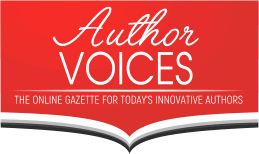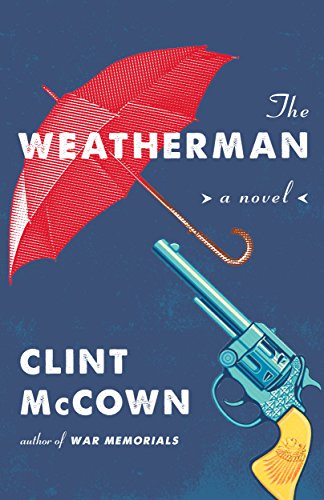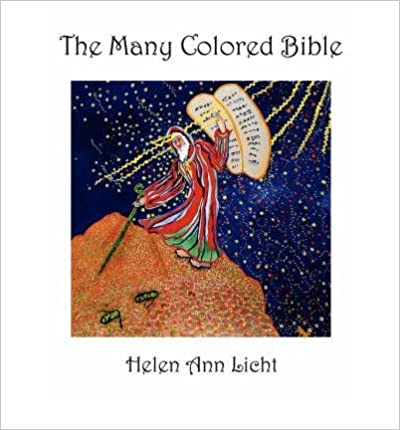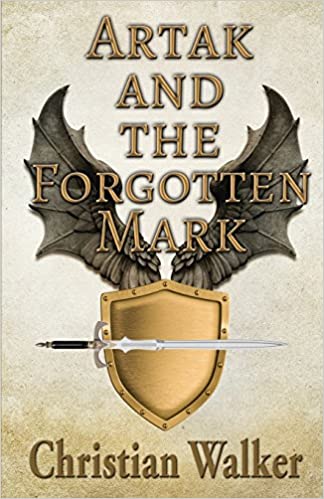Interview with Clint McCown
Author of The Weatherman
Where are you from originally and where do you reside now?
I ws born in Fayetteville, Tennessee, but for the past 16 years I’ve been in Richmond, Virginia.
If you currently reside somewhere besides where you were born, what’s the story that lead from there to here?
When I was four years old, my father became a Secret Service agent, so we moved around a lot while I was growing up. Then college in North Carolina, Alabama, and Indiana, with stints along the way in New York City, where I was an actor for a few years, and in Montgomery, Alabama, where I was a broadcast journalist, and North Carolina again, where I was the state poet-in-residence for two years. I taught at Beloit College for 20 years before coming to Virginia Commonwealth University to teach in their MFA program. I also teach in the Vermont College of Fine Arts low-residency MFA program.
What made you decide to write and publish your first book?
I became friends with A.R. Ammon (twice winner of the National Book Award in poetry and McArthur genius grant recipient), and Archie liked my poems. He was then serving as general editor for Jackpine Press, run by Emily Wilson, and he asked me to submit a manuscript. It was selected as winner of their Germaine Breé Book Award.
How would you describe your books to first time readers?
I suppose they fit in the category of what might be called comic Southern Gothic– Flannery O’Connor was one of my great influences. But I also owe a debt of influence to Kurt Vonnegut and to Ray Carver, who was a friend. My subject matter ties to whatever questions I might be wrestling with at the time.
One novel is about insiders vs. outsiders; one is about the baggage of the past that haunts us; one is about free will vs. determinism; one is about the various bridges and walls created by overseas wars. As for my verse collections, I suppose they mostly have an underpinning of zen, which, due to the very nature of zen, means there are no underpinnings at all.
Who do you feel is most likely to connect with the topics you write about?
I don’t write for a particular audience, but people with a sense of humor may be more likely to appreciate what I’m up to. I suppose my readers are those whose literary tastes fall somewhere between The Cat in the Hat and Moby Dick. In many ways, I write to satisfy my own curiosity about the dilemmas of daily living, usually filtered through a comic lens. If I’m lucky, I might occasionally blunder into some byproduct of insight.
What unexpected or surprising thing did you learn during the process of writing and publishing?
From the beginning–and at this point I’m 45 years into a writing career– I’ve been continually delighted to discover and rediscover that I don’t have to know where I’m going to get there. Each book is something I discover through the writing of it, and any preliminary plans that may have launched my forward movement are quickly cast aside as the organic requirements of the material gradually make themselves known to me.
If you could, what advice would you give to your past self before embarking on this journey?
I would tell myself that there are two basic approaches to first drafts: gushing or chiseling. For me, gushing would turn out to be unproductive. I need to chisel slowly through the granite of a story, because the momentum of a gush tends to wash me completely off the track. Every sentence can be written a hundred ways, but one of those will be the best version for the story. I’ve found that if I don’t get the first sentence right, all that comes after it will be flawed– and often useless.
How many people would you ideally like to reach with your books?
If one person is deeply changed by a book, it was worth writing. Ideally, I’d want my books to be read by people who would want to keep them after reading them, however large or small that number may be. But, for the sake of answering the question, let’s say I’d like my books to reach everyone in the world, now living or yet to be born. Except for that guy who cut me off in traffic in 1987.
I don’t want him to read any of my books. He probably doesn’t even know how to read, but if he did happen to come into possession of one of my books, he’d probably leave it in the restroom at O’Hare airport, where it would get water stained on the counter and subsequently be thrown in the trash by the janitor, who wouldn’t need it because he’d already own a copy. In fact, that janitor may be my favorite and most loyal reader. He owns all my books, and he sometimes reads favorite passages aloud to his wife in the evenings. Great guy.
What has been the biggest challenge and frustration during the process to date?
The biggest frustration has been with the ever-widening gulf between the art and the business. Literary journals are a sort of last bastion of art being published for its quality rather than for its financial potential. I’ve known major editors at major publishing houses who have been overruled by marketing directors in the acceptance of manuscripts. That’s a sad state of affairs.
What’s your biggest strengths when it comes to book a) writing, b) publishing and c) marketing?
I suppose among my strengths are patience, since I don’t mind if some books are years in the making; and my love of the process on the sentence level. But as for publishing and marketing, I have no strengths at all. I leave all that to others.
What’s your biggest weakness when it comes to book a) writing, b) publishing and c) marketing?
My biggest weakness as a writer may be that I don’t write every day. Or every week. Sometimes not even every month. But I believe certain projects require an incubation period. At least that’s what I tell myself when I’m binge-watching some television show about flawed people making flawed decisions about how to live their horribly flawed lives. As to my biggest weakness in the realm of publishing and marketing, as noted above, I have no strengths at all. So I guess that counts as a weakness.
When do you think you will write your next book?
I’m always working on several projects at once. Right now I’m refining a novella, a story collection, a craft book, and two memoirs.
Are you self published or did you use a hybrid publisher, or a traditional publisher?
I’ve always used traditional publishers.
FEATURED AUTHORS
Worrying if I was telling too many secrets Leaving out so much.
Keep Reading »Writing is an arduous task even when one has all ideas clear in the read more
Keep Reading »Write the book, start marketing (letting people know of it) before you finish.
Keep Reading »










